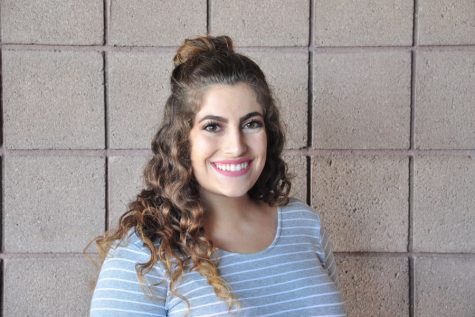Loss of gifted programs in high school not necessarily a bad thing
September 22, 2015
The National Association for Gifted Students describes a gifted student as, “youth who give evidence of high achievement capability in such areas as intellectual, creative, artistic, or leadership capacity, or in specific academic fields, and who need services or activities not ordinarily provided by the school in order to fully develop those capabilities.”
In the Chandler Unified School District, there is a gifted program for students to test into, Chandler Academically Talented Students, or the CATS program. When students enter the second grade, they are given a test to measure whether the gifted program is the route for them to follow. The CATS program runs third through eighth grade if the students choose to stay in the program.
When CATS students transition into high school , the option to continue on with this program disappears. The students, of course, can take advanced placement or honors classes.These classes still challenge the students, but can be more specific to what they want to pursue in the future.
“By high school, [the chandler district] finds that there are many students who have not been identified as gifted,” Diane Hale, the Assistant Director for Gifted Education, states, “but who are truly motivated to work at an academically advanced level.” This means any student willing to challenge themselves at the level of gifted students are able to, while the gifted students themselves can still be challenged.
Assistant Superintendent of Secondary Education, Dr. Craig Gilbert, shares, “[Advanced placement classes] provide the rigor to prepare these students for college and careers.”
Even though the students cannot go into a specified gifted program, they can take courses leaning towards what they plan to do in the future.
The gifted students, just like any other students, have a different, more in depth, way of thinking. Hale also states, “some research suggests that gifted students often prefer more depth and application rather than simply more advanced course work.”
Finding gifted teachers can be an issue at times. Dr. Gilbert states, “As in other areas of teaching requiring specific endorsements, it can be difficult finding enough [gifted] teachers.” Also, given the fact that state funding for gifted education was cut a few years prior, it is difficult to give this program the funding it deserves. Dr. Gilbert explains, “We believe in the value the program brings to the students.”
“Some students say that the junior high CATS program is the best of both worlds…they get to be a part of the junior high campus like any other student would,” Hale informs. This would make those students transition to high school, with the different advanced programs to enter into, much easier.

